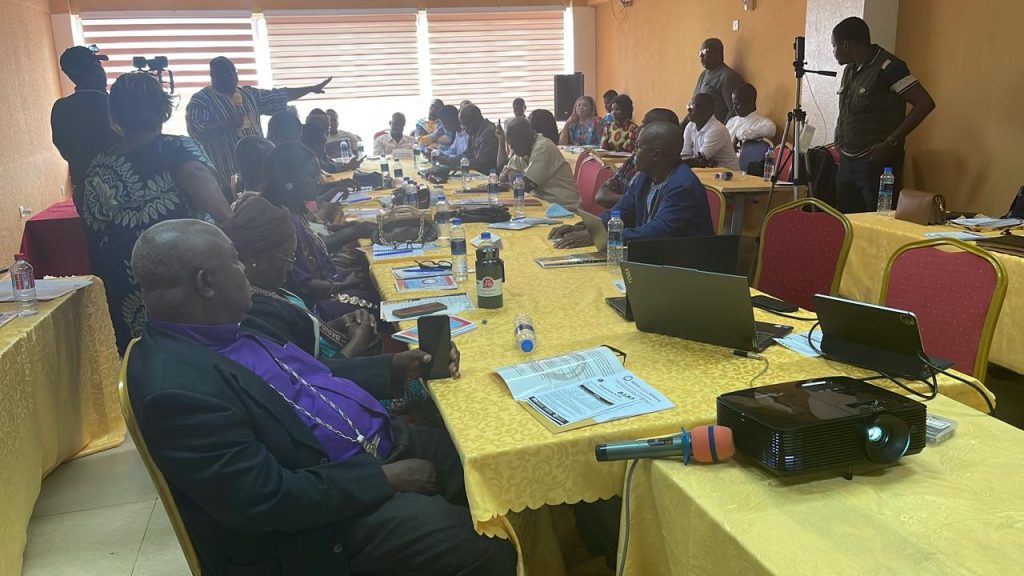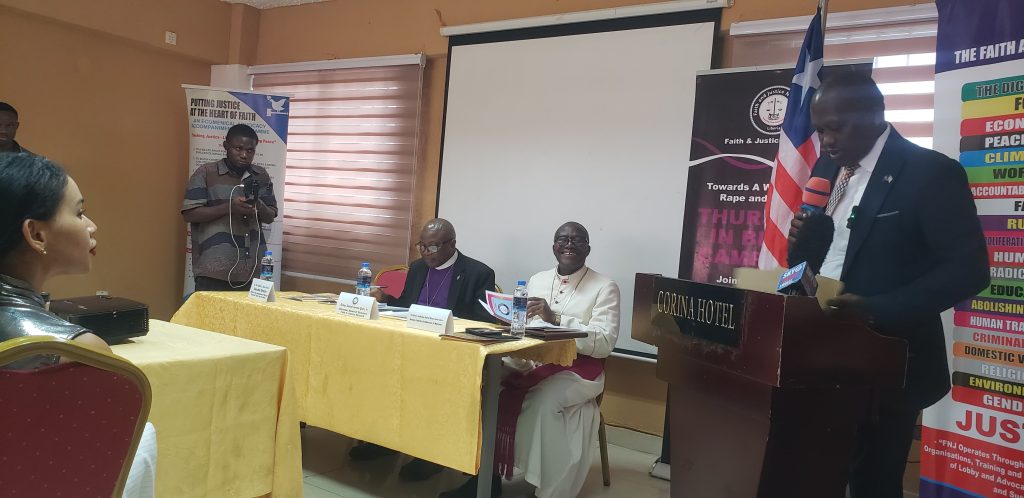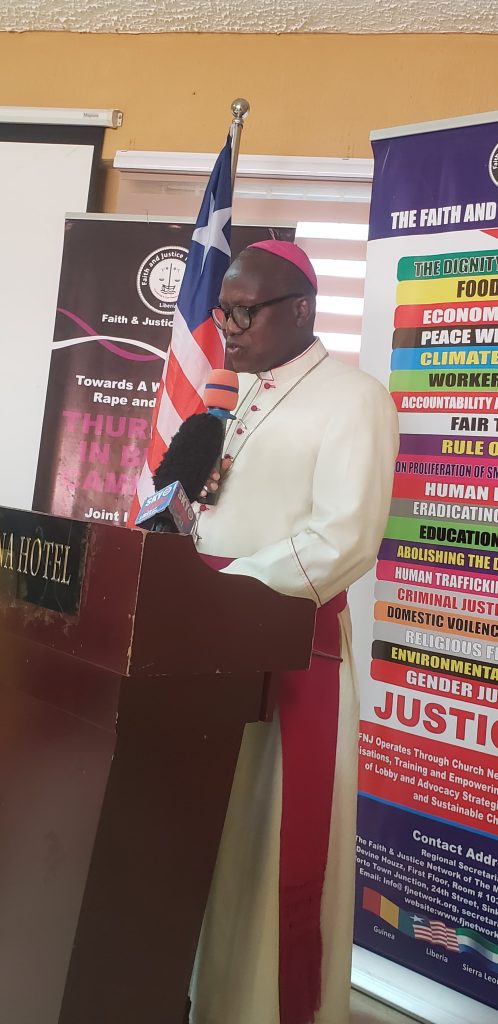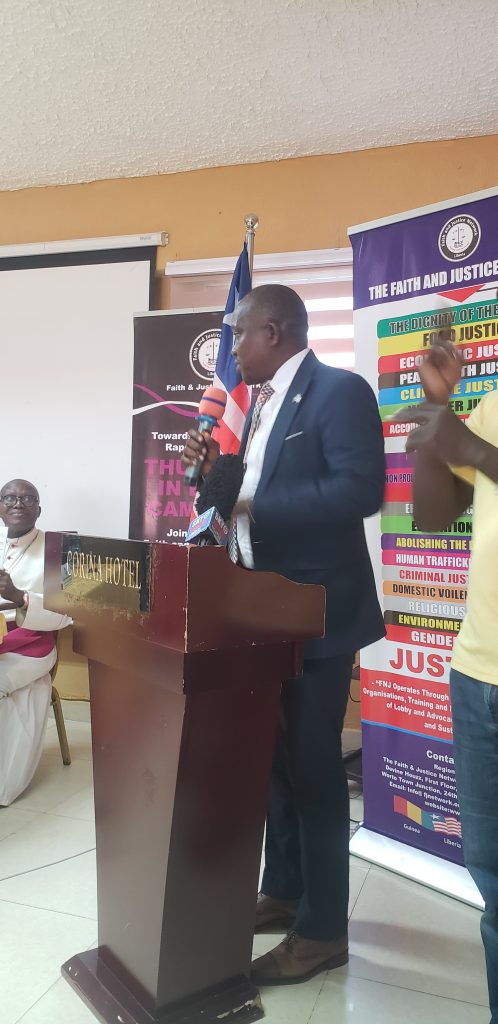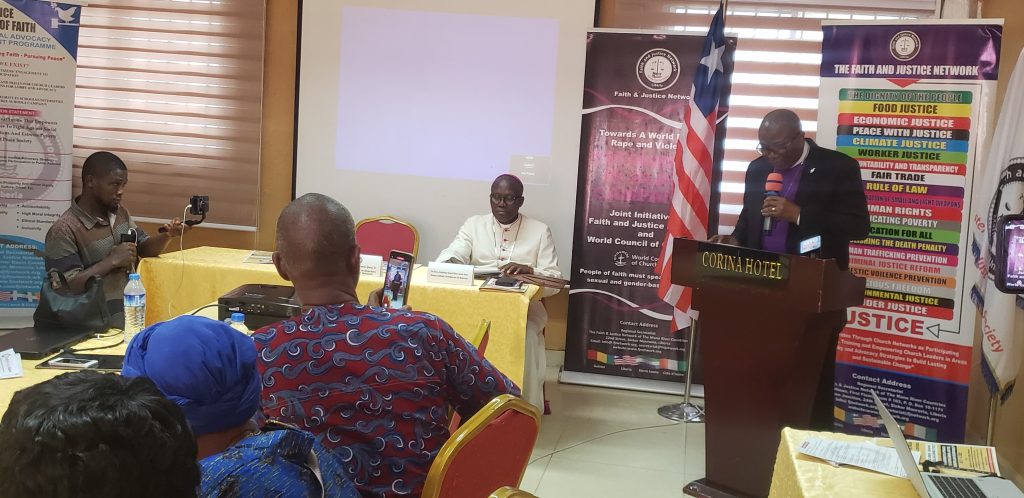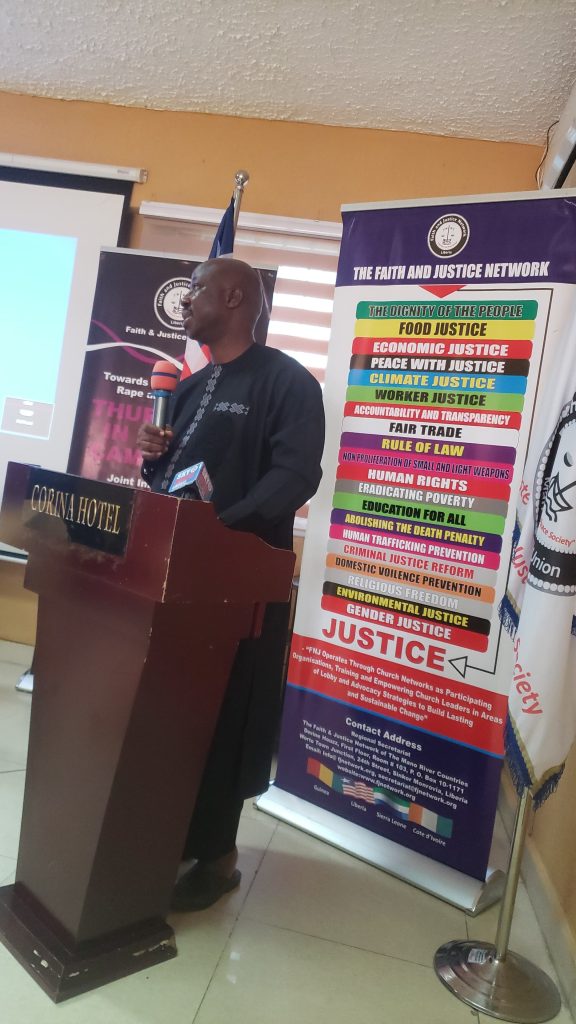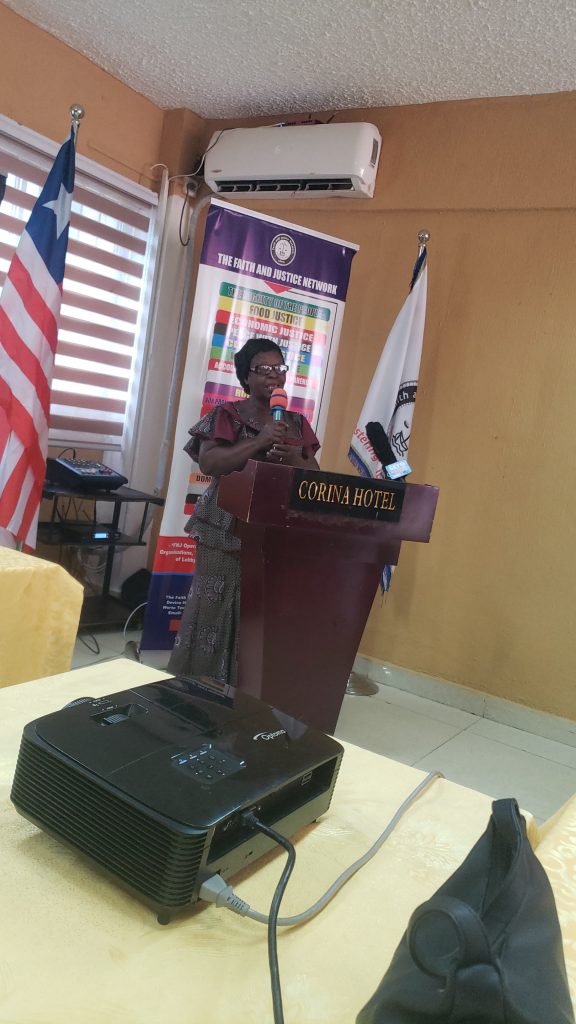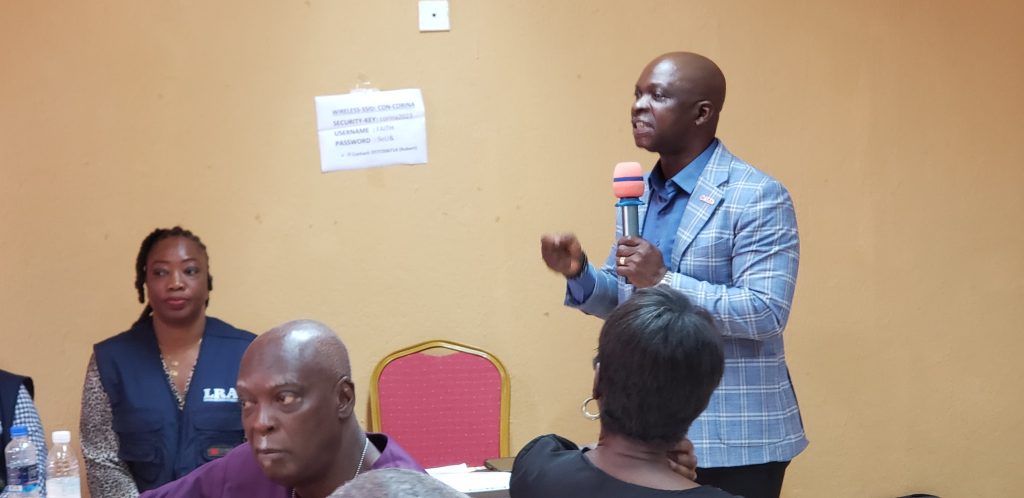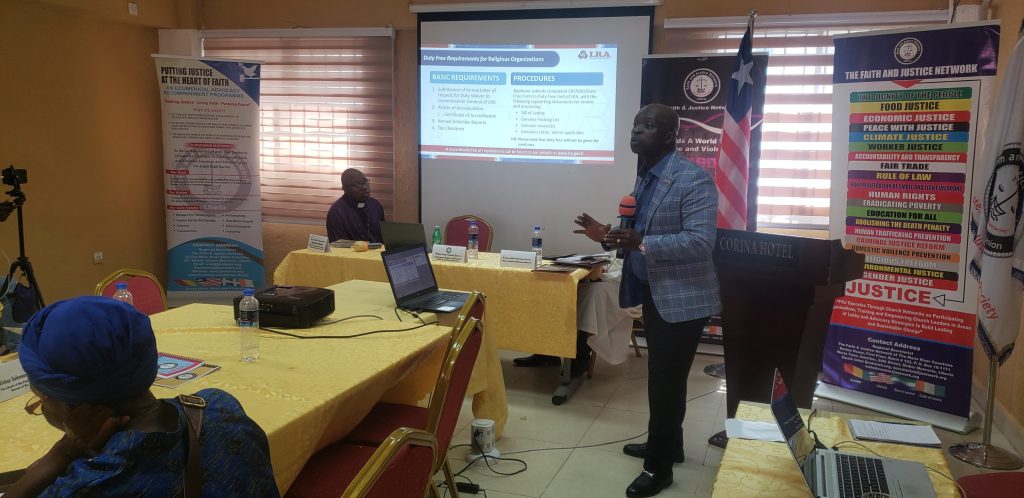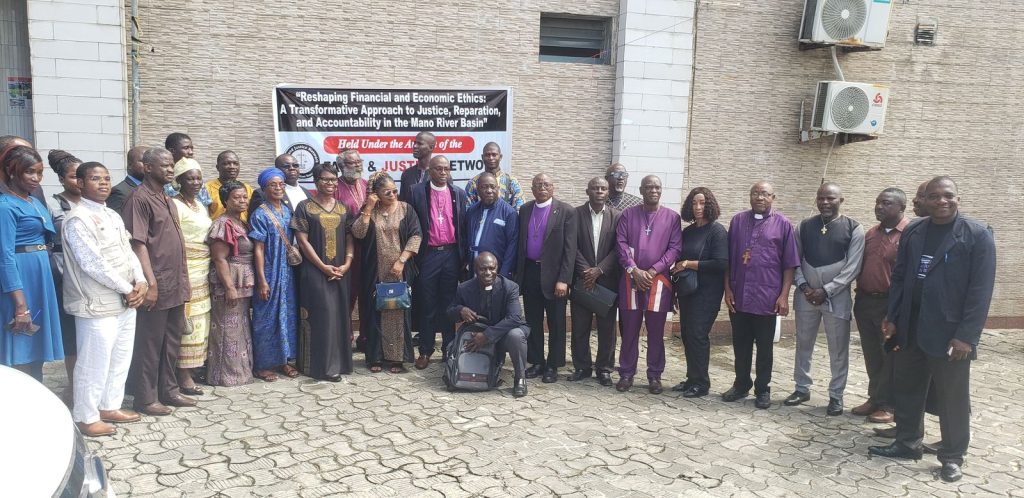Views: 7
Monrovia, Liberia – July 3, 2025 — The Faith and Justice Network officially opened its Regional Ecumenical Zac Tax Campaign Conference in a powerful ceremony held at Corina Hotel, bringing together over 60 church leaders, civil society actors, youth, women, lawyers, economists, theologians, and justice advocates from across the Mano River Basin countries—Liberia, Sierra Leone, Guinea, and Côte d’Ivoire. The regional ecumenical conference seeks to challenge unjust tax systems, expose exploitative fiscal structures, and call for moral, legal, and reparative responses to economic and ecological injustices rooted in both historical and contemporary realities.
The conference was officially declared open by Bishop Samuel Jerome Quire, Jr., Chairman of the Board of Directors of the Faith and Justice Network and Bishop of the United Methodist Church in Liberia. In his opening and welcome statement, Bishop Samuel Jerome Quire, Jr., Chairman of the Board of Directors of the Faith and Justice Network and Bishop of the United Methodist Church in Liberia declared,
“Today, we come not only as activists or intellectuals—but as moral voices of conscience in a region bleeding from economic injustice and political corruption. The Zac Tax Campaign is a movement of courage, of righteousness, and of responsibility—calling both governments and global powers to account. This is not just about tax policy—it is about restoring dignity, rebuilding trust, and reclaiming hope.”
He urged participants to see their presence not as symbolic, but as an act of faith in the transformative power of justice grounded in ethical truth.
Delivering the keynote address, His Grace, Archbishop Gabriel Blamo Jubwe, Archbishop of the Catholic Archdiocese of Monrovia, delivered a comprehensive theological and moral challenge to the region’s political and economic elites.
“The economic disorder we face today is not merely a technical issue—it is a spiritual crisis of greed, injustice, and neglect. Our call today is for a new social covenant, where taxes are no longer instruments of oppression, but vehicles of restoration and equity,” Archbishop Jubwe declared. He invoked the biblical story of Zacchaeus—a corrupt tax collector turned justice seeker—as a moral blueprint for nations to emulate, calling for fiscal repentance and reparation. “Zacchaeus did not just confess—he repaid. True justice requires restitution. And until our systems of extraction and exploitation are transformed, peace will remain elusive.”
As co-keynote speaker, Cllr. Dr. Jallah A. Barbu, Executive Director of the Office of the Establishment of the War and Economic Crimes Court of Liberia, contextualized the moral challenge within a framework of legal accountability and public policy reform. “Economic crimes are not victimless. They destabilize governments, deprive generations, and often lead to violence. Justice in the Mano River Basin must go beyond trials—it must address the root causes of economic violence,” he said.
Dr. Barbu emphasized the intersection of law, ethics, and finance, warning that impunity in economic crimes fosters a broader culture of lawlessness. He lauded the Faith and Justice Network for bridging the gap between grassroots advocacy and structural reform.
The opening ceremony brought an unmistakable spirit of solidarity, urgency, and theological conviction. Choirs from local churches lifted spiritual songs between speeches, and moments of intercessory prayer framed the event with reverence. Participants from Guinea, Sierra Leone, and Côte d’Ivoire offered regional solidarity messages, reflecting shared struggles in the fight against tax injustice and extractive exploitation.
The Zac Tax Campaign, launched by the Faith and Justice Network, is a prophetic regional campaign advocating for:
- Equitable and transparent tax systems
- Abolition of exploitative tax incentives and illicit financial flows
- Reparations for historical injustices and ecological damage
- Active citizen engagement, especially among churches and youth
- Support for the War and Economic Crimes Court and truth-telling
- Mechanisms
The two-day conference was filled with workshops, strategy sessions, and theological reflections aimed at building a sustained regional movement. The Faith and Justice Network has made it clear: “this is not just a conference—it is the ignition of a transformative movement rooted in faith, justice, and people power’” says Tolbert Thomas Jallah, Jr. Regional Executive Director.
